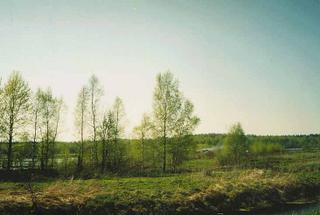
Just Because It's 'Positive' Doesn't Mean It's Good
This came in from Pleiades . I'm quoting the article in full here because it's all very important to know:
By Nic Fleming, Science CorrespondentBasically, the warmer it gets, the more methane gets exposed and released into the air. That doesn't sound too good. It also means it's going to be a lot harder for Russia to meet its Kyoto Protocol targets.
(Filed: 11/08/2005)
A melting permafrost peat bog stretching across an area the size of France and Germany could unleash billions of tons of greenhouse gas into the atmosphere, Russian scientists have warned.
The huge frozen region, covering around 360,000 square miles of western Siberia, is rapidly turning into a watery landscape of shallow lakes. Experts fear it could release huge quantities of methane trapped in the frozen peat.
The latest alert follows research by Sergei Kirpotin, a botanist from Tomsk State University in Russia, and Judith Marquand from Oxford University.
Mr Kirpotin told New Scientist magazine that the entire western Siberian sub-Arctic region had begun to melt in the last three or four years. He predicted an "ecological landslide that is probably irreversible and undoubtedly connected to climatic warming".
Western Siberia has warmed faster than almost anywhere on the planet, with average temperatures increasing by about 3C in the last 40 years.
The warming is believed to be due to a combination of man-made climate change, a cyclical atmospheric phenomenon known as the Arctic oscillation, and feedbacks caused by melting ice. As ice melts, it exposes bare ground and sea surface that absorb more solar heat than reflective white ice and snow.
Siberia's peat bogs formed around 11,000 years ago at the end of the last ice age. Since then they have been generating methane, most of which has been trapped in permafrost and deeper ice-like structures called clathrates.
Dr Larry Smith, an expert at the University of California at Los Angeles, has estimated that the west Siberian bog alone contains some 70 billion ton of methane - a quarter of all the methane stored on the land surface worldwide.
Scientists at the University of Alaska have found methane "hot spots" in eastern Siberia where the gas is bubbling from thawing permafrost so fast that it is preventing the surface from freezing, even in mid-winter.
Catherine Pearce, a climate campaigner at Friends of the Earth, said: "It's very worrying. The release of these emissions is causing massive climate instability leading to extreme weather events, rising temperatures, the melting of the Arctic ice sheet, rising sea levels, droughts, heat waves and famine."

The actual New Scientist article was hard to access, as people are probably flocking to read it as we speak.

No comments:
Post a Comment